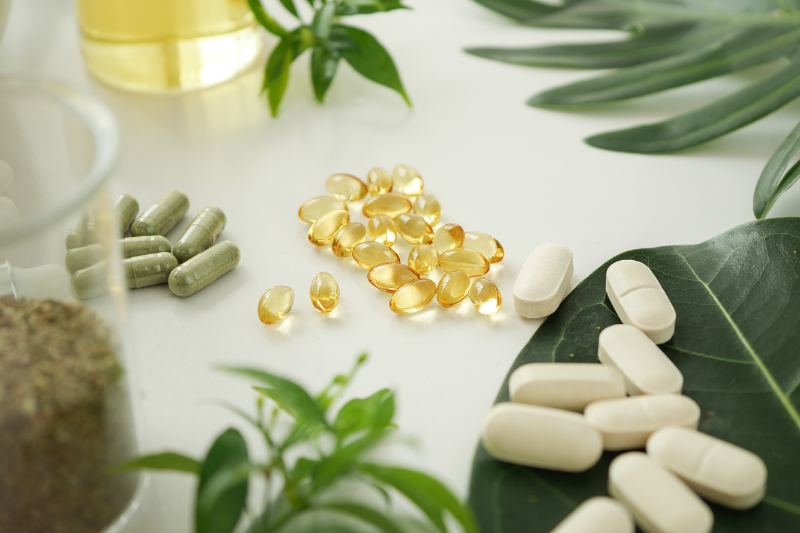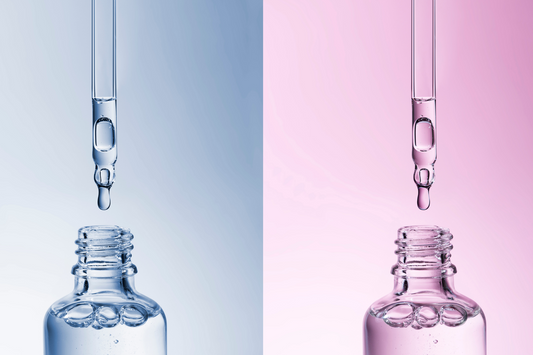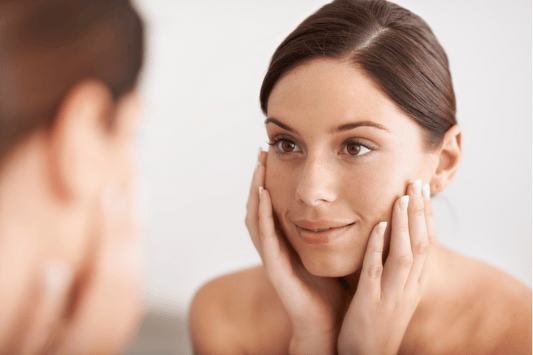Biotin has entered the supplement scene as a way to increase hair growth. Vitamins and supplements in general have been pushed by manufacturing companies for years. From daily vitamins to supplement tablets, consumers have been trying to solve specific issues, improve preventative care, and find the newest and easiest way to obtain peak health.
When it comes to hair loss or hair thinning, many people have started taking biotin as a way to increase follicle growth and strength. But does it actually work? Let’s find out.
What is the Purpose of Biotin?
Biotin is a B-complex vitamin that is involved in breaking down fats, carbohydrates, and amino acids. Basically, biotin is a key part of taking different materials and making them into energy. Biotin is naturally found in many foods such as meat, eggs, fish, seeds, nuts, and vegetables. In order for this nutrient to be effective it needs to be consumed.
With a healthy, balanced diet, most people already have sufficient levels of biotin. The amount of biotin that you actually need each day depends on your age.
According to the National Institute of Health, there are no nationally representative estimates of biotin intakes in the United States, but the average biotin intake from foods in other western populations is about 35–70 mcg per day, indicating that most people in these countries consume adequate amounts of biotin.

Is Biotin Effective for Hair Growth?
Many supplements that contain biotin are promoted to improve hair, nail, and skin health…but is that actually true? Let’s break down the science.
Keratin is the protein that makes up your skin, nails, and hair. Strong keratin production results in stronger hair, lowering the risk of breakage as hair grows. Researchers have found that biotin improves the structure of keratin, however, this is the only connection to hair growth found so far.
Biotin is likely to be somewhat involved in the process of growing hair, but it is NOT directly linked.
Is a Biotin Supplement Necessary?
Biotin supplements are truly only helpful for certain groups of people who have a hard time getting enough biotin — for example, people with biotinidase deficiency, alcohol dependence, pregnant, and breastfeeding women.
Overall, biotin deficiency is very rare in the United States, but can cause various issues like thinning hair or hair loss, brittle nails, skin rashes, etc. If you are worried about any nutrient deficiencies, we recommend that you visit your doctor to inquire about blood work that may help determine any issues.
There is only a certain amount of biotin that your body can process and use efficiently. Many biotin supplements contain far more than the recommended amount of daily intake. Most tablets contain anywhere from 1,000 to 10,000 micrograms of biotin — that’s more than 33 times the amount an average person needs in a day. According to the National Institute of Health there is no evidence that a high amount of biotin is toxic, but it could cause clinically significant falsely high or falsely low laboratory test results, depending on the test.

In summary, most people get enough biotin from the foods they eat so taking additional biotin supplements is not necessary. Many medical professionals have actually spoken out against daily vitamins and supplements as a whole, saying you can receive all the nutrients you need from a balanced diet.
It’s also important to be aware that vitamins and supplements in general are not regulated in the same way as medicine and don’t have to go through FDA approval. Be cautious with marketing claims as they tend to be generalized and exaggerated.





